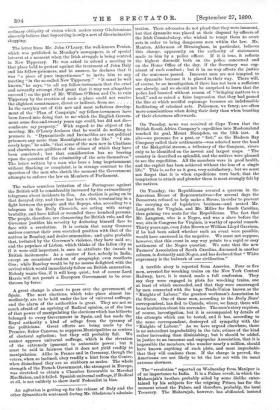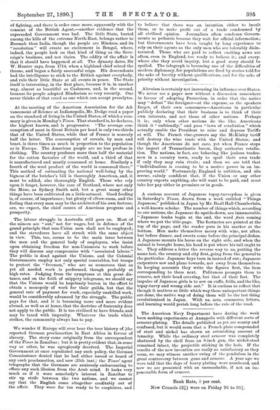The " revolution " reported on Wednesday from Manipur is
of no importance to India. It is a Palace revolt, in which the Maharajah's brother, probably aided by some dislike enter- tained by his subjects for the reigning Prince, has for the moment seized the Palace, and therefore, probably, the local Treasury. The Maharajah, however, has abdicated, instead of fighting, and there is order once more, apparently with the consent of the British Agent,—another evidence that the superseded Government was bad. The little State, buried among the hills of the extreme North-East, belongs rather to Brulnah than India, though the people are Hindoos, and its " revolution " will create no excitement in Bengal, where, indeed, the people look on that kind of thing as the Sove- reign's business, and not theirs. The oddity of the affair is that it should have happened at all. The dynasty dates, Sir W. Hunter says, from 1714, when a highland chief seized the throne, and began a fairly successful reign. His descendants had the intelligence to stick to the British against everybody, and rule their little State at all events in peace. The State itself is interesting, in the first place, because it is, in another way, almost as beautiful as Cashmere, and, in the second, because its people adopted Hindooism so very recently. One never thinks of that creed as one which can accept proselytes.



































 Previous page
Previous page